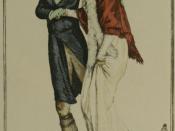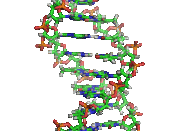Importance of Nonverbal Communications in Today's Society INTRODUCTION In the late twentieth century, the increase in transportation technology made possible for people to relocate across the world, creating one big melting pot of cultures, subcultures and ethnicities (Ting-Toomey, 1999). Even though most people are capable of communicating using a common language, there exists a barrier created by the receptiveness of nonverbal communication cues. The purpose of this research paper is to further explore the nature of nonverbal cues.
History of Nonverbal Communications In the beginning of the human race, people used nonverbal communication as means for exchanging information (Bennet, 1998). However, with the advent of language about 100,000 years ago, people expanded on verbal communications. Later the Greek philosophers, circa 427 BC, believed that ideas in philosophers' heads, expressed in proper constructed statements, were thought to be relevant to guiding the citizens (Bennet, 1998). This belief established the logic for the notion that the ideas that are expressed in words are real, whereas people and what they do were hardly worth noticing (Bennet, 1998).
This split has been infused in the Western culture ever since, according to Bennet (1998), where people pay more attention to what is said, rather then by whom or how. Just the opposite is true in the Eastern culture. During the recent upheaval in the Middle East, the U.S. asked Arafat to convey a message of peace to his people. The message was released by Arafat's staff and not Arafat himself, making the message not important, since the people there pay more attention to who is the person speaking, then just to the spoken word.
Nonverbal Skills are Learned People learn their nonverbal cues from the culture in which they live (Ting-Toomey, 1999). Our parents have passed on this information to us unconsciously. Now, that...


